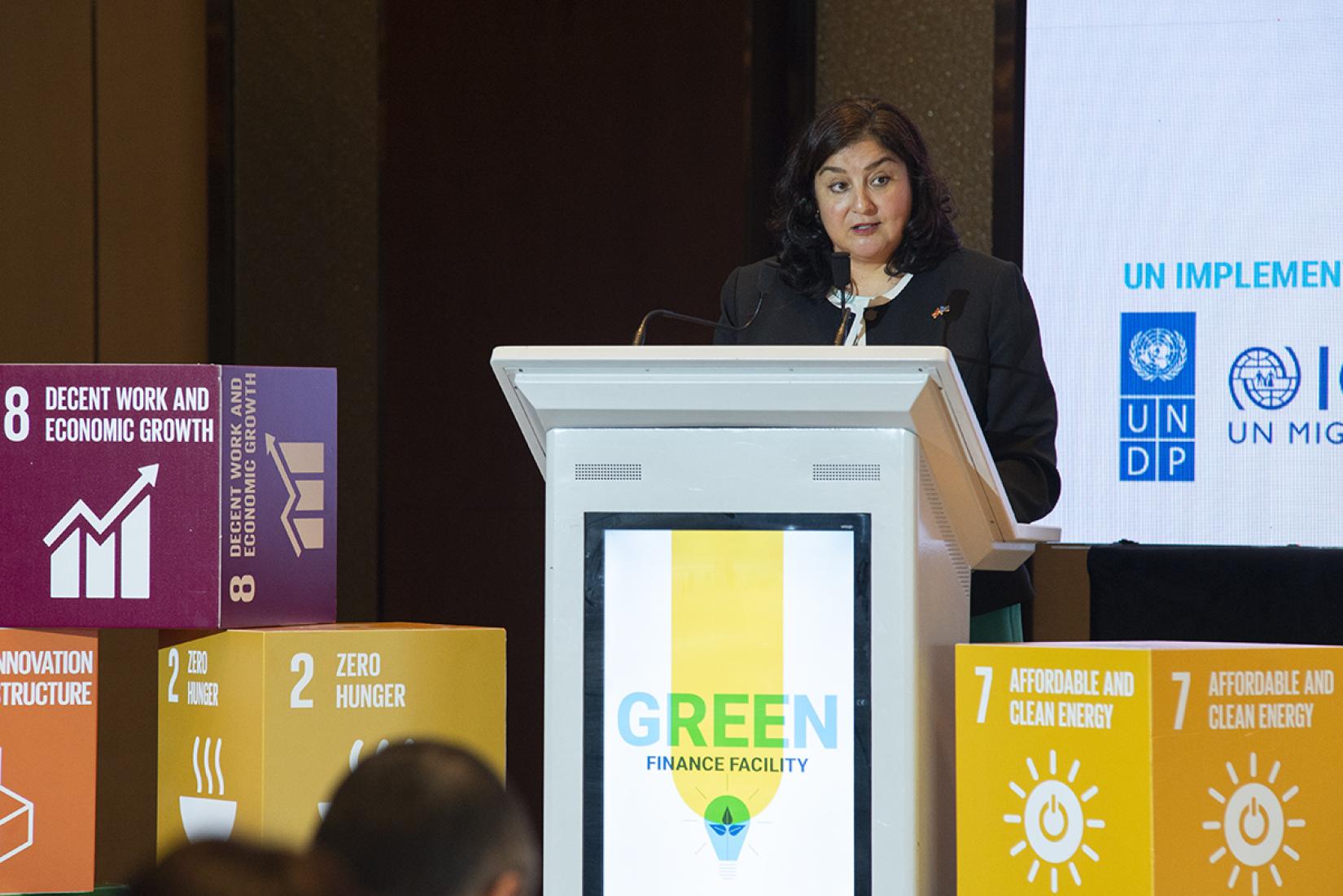New “green” loan options for underserved SMEs and individuals in North Macedonia
16 nëntor 2023
The programme is aligned to and supports the achievement of Sustainable Development Goals (SDGs) and the UN Sustainable Development Cooperation Framework (SDCF) targets. It is expected to result in 70,068 MWh of annual energy savings, 80,510 tons of CO2-eq emissions avoided, and 10.7 MW in new renewable energy capacity.

SKOPJE| 3 November 2023| New loan options with Performance-Based Payments (PBP) will be made available to Small and Medium-sized Enterprises (SMEs), targeting groups of creditworthy but underserved individuals/households from North Macedonia to finance their investments in Renewable Energy (RE) and Energy Efficiency (EE) solutions. This was announced at the Green Finance Facility (GFF) Product Launch event today in Skopje, where representatives from the Government of North Macedonia, the United Nations (UN) family, the European Bank for Reconstruction and Development (EBRD), and from commercial banks from the country met to mark this significant milestone in the implementation of the project.
“Considering that all countries are dealing with many challenges, such as the post-covid economic recovery, the economic and energy crisis, I believe that this project with products aimed at small and medium-sized enterprises and individuals from underserved categories is an excellent opportunity to express our strong commitment to accelerating the implementation of the 2030 Agenda and achieving the Sustainable Development Goals“ - said Mr. Fatmir Bytyqi, the Deputy Prime Minister in Charge of Economic Affairs, Coordination of the Economic Departments, and Investments in the Government of North Macedonia.
Sparkasse Banka, ProCredit Bank and Silk Road Bank are the first commercial banks that will provide sub loans to SMEs and target groups for investments in renewable energy and energy efficiency, while the GFF will subsidize 5-30% of the loan principal. PBP loans of this kind are now going to be made available to seven target groups of creditworthy but underserved individuals/households, including female-headed households, single parents, households with people with disabilities, Roma, employees affected by Covid-19, remittance recipients and returning migrants. The investments from both SMEs and the seven target groups of individuals/households are expected to improve and reduce energy consumption, reduce greenhouse gas emissions, and contribute to cleaner air in North Macedonia.
“GFF aims to bring the benefits of green transition to SMEs and groups of society who are usually the last to join and benefit from the green transition, such as single parent households, Roma, households with persons with disabilities, and recipients of remittances. I hope GFF loans will make investments in renewable energy and energy efficiency easier and more affordable for small businesses and homes“ – said Ms. Rossana Dudziak, UN Resident Coordinator in North Macedonia.
The programme is aligned to and supports the achievement of Sustainable Development Goals (SDGs) and the UN Sustainable Development Cooperation Framework (SDCF) targets. It is expected to result in 70,068 MWh of annual energy savings, 80,510 tons of CO2-eq emissions avoided, and 10.7 MW in new renewable energy capacity. Furthermore, enabling access to affordable financing for renewable energy and energy efficiency solutions will contribute to advancements towards SDGs 7 and 13.
The performance-based payment loans will be available starting from 3 November 2023, until the end of 2025 or until the GFF’s financial resources allocated for PBPs have been fully awarded to project beneficiaries. Letters of Agreement with other local partner financial institutions responsible for implementation of performance-based payment (PBP) loans in the country are expected to be signed in 2024.
The "Green Finance Facility" project is implemented by the United Nations Development Programme (UNDP), International Organization for Migration (IOM) and the United Nations Economic Commission for Europe (UNECE), together with the European Bank for Reconstruction and Development (EBRD) as the partner international financial institution, and it is financially supported by the Joint SDG Fund, with co-financing from the Government of North Macedonia.






